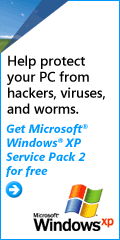President's File
I have a coffee mug
that has a picture of a tired, weather beaten cowboy on it. Next to that picture is a caption that says “There were a helluva lot of things they didn’t tell me when I hired on with this outfit.”
In a way that caption sums up my first year as President. It’s been rewarding but there are certain things I wish I had known up front. Probably the single biggest surprise has been how much time this column takes me to put together. It’s usually a weekend or two a month.
This column is a labor of love and an exercise in frustration for me, I’m not a writer. It’s not something I enjoy doing. I’d much rather spend my weekends playing golf or paintball or just about anything other than sitting front of a computer… I spend enough time sitting front of a computer during the week.
OK, enough of this… Let’s get it on.
News & Notes
Election of Officers – The board of directors will be electing the officers who will conduct the day to operations of DACS for the coming year this month. We will be electing six officers, president, three vice presidents, secretary and treasurer. If you’re interested in running for any of these
offices please contact me or any other
officer or director.
Director and SIG leader, Bill Keane, has informed the board that he will be moving out of the area in the near future and requested that we start looking for a replacement. If you’re interested in fulfilling the remainder of Bill’s term on the board of directors, or taking the reigns of the Advanced OS and Linux SIGs, contact me or any other officer or director.
Viruses and the Mac
A popular misconception is that Macs are immune to viruses. This simply isn’t true… Any general purpose computing platform is susceptible to viruses. The fact that the Mac has not been targeted as widely as Windows has more to do with its relatively small market share than it does anything else. At the moment, there are two known OS X viruses OSX/Leap.A (and OSX/Inqtana.A. They were both discovered in mid-February.
The bottom line is if you have a Mac and don’t have anti-virus software you’re living on borrowed time. I expect to see additional malware targeting the Mac
released over the next year. So far, I’ve only seen limited reports of OSX/Leap.A in the wild, but it’s only a matter of time before someone releases an OS X, or for that matter, of a Linux native virus that makes a big splash in the wild.
Regardless of whether you are a Windows, Mac or Linux user you should practice Safe Hex.
1) Keep your system patched. Be sure to check for patches or updates for both the operating system and any applications you use at least once a month.
2) Keep backups of important files. Accidents happen; having backups of your important files makes them easier to
recover.
3) Use strong passwords… A strong password should be at least 8 characters and include letters, numbers, and at least one special character. It should also be easy to remember.
4) Don’t run as Root or Administrator unless you absolutely have to.
In addition to those basic steps you should also:
• Install and use anti-virus software.
• Install and use a personal firewall.
• Install and use anti-spyware software.
• Use care when downloading and
installing programs.
• Disable file and printer sharing in your computer, particularly when accessing the Internet using cable modems, digital subscriber lines (DSL), or other high-speed connections.
• Use care when reading e-mail with attachments:
Never, ever:
• Open e-mail attachments from someone you don’t know.
• Open e-mail attachments forwarded to you even if they’re from someone you know.
• Open unsolicited or unexpected e-mail attachments until you’ve confirmed the sender actually meant to send them.
• Do not select the option on web browsers for storing or retaining user name and password.
• Do not disclose personal, financial, or credit card information to little-known or suspect web sites.
• Delete spam and chain e-mail’s; do not forward these and do not use the unsubscribe feature.
• Log off the online session and turn off your computer when it is not in use.
• Do not use a computer or a device that cannot be fully trusted.
• Do not use public or Internet café computers to access online financial services accounts or perform financial transactions.
• Ensure your browser supports strong encryption (at least 128-bit). Most browsers now provide this by default.
• Install and use a file encryption program and access controls.
• Broadband users: install and use a hardware firewall/router.
End Notes
More books… My reading list for 2006 keeps growing. Here are the latest additions:
• No True Glory : A Frontline Account of the Battle for Fallujah by Bing West
• Biggest Brother : The Life of Major Dick Winters, The Man Who Led the Band of Brothers by Larry Alexander
That’s it for this month. I’d like to take a moment and thank Suzy Bogguss, James Taylor, B. B. King and Snapple for their invaluable assistance in writing this column.
Your questions, comments and book recommendation are always welcome. You can reach me at jasetaro@mags.net or jasetaro@yahoo.com.
—Jeff Setaro
|
